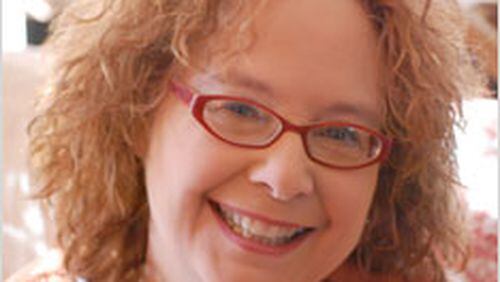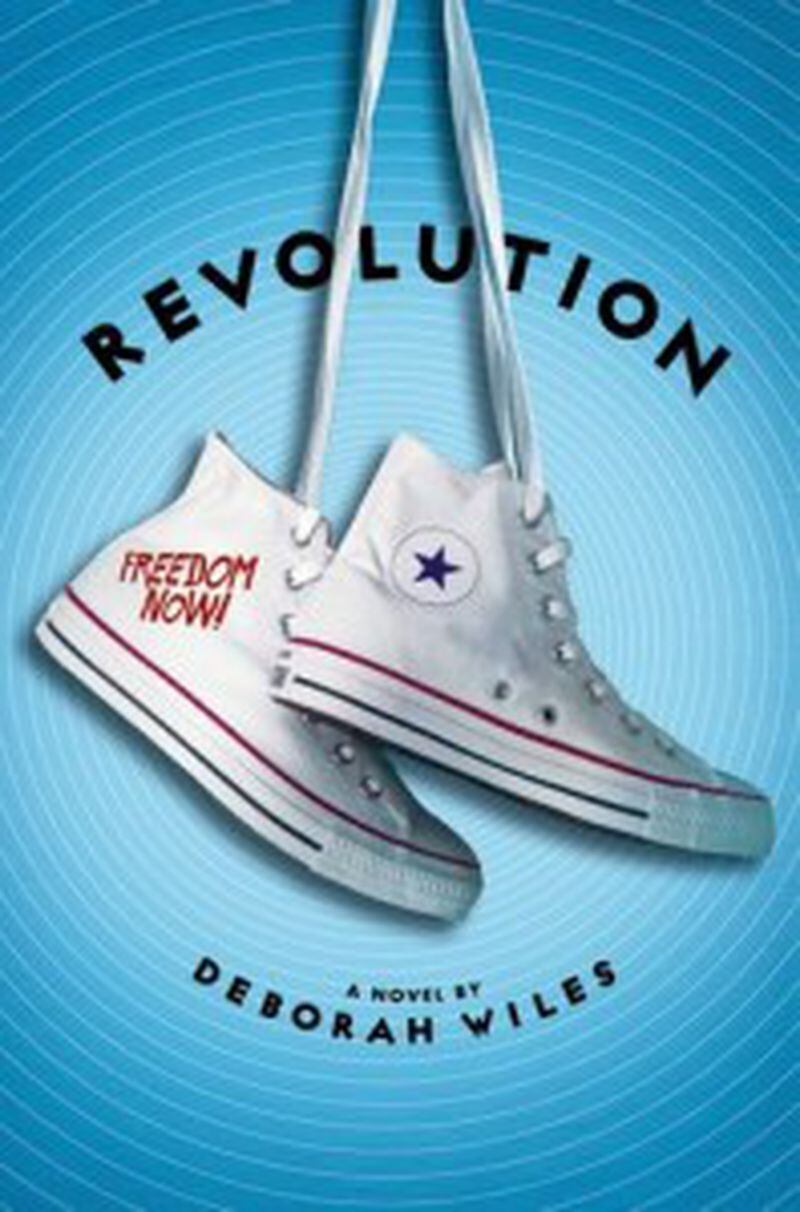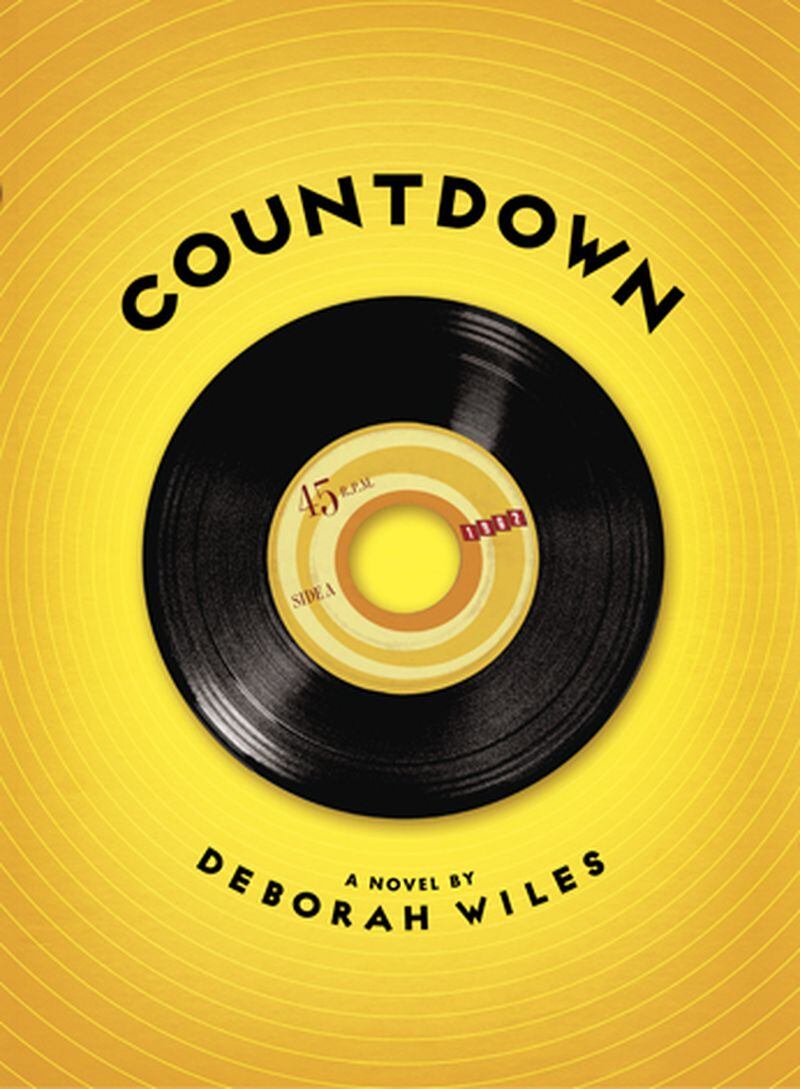Atlanta author Deborah Wiles is a National Book Awards finalist in the Young People's Literature category for "Revolution: The Sixties Trilogy, Book Two." Winners will be announced at a New York ceremony on Nov. 19.
Wiles is the author of two picture books and six young adult novels, including "Each Little Bird That Sings," a 2005 National Book Award finalist.
A fictional account of the Freedom Summer of 1964 in Greenwood, Miss., "Revolution" (Scholastic Press, $19.99) is told from the dual perspectives of Sunny, a white girl worried about "invaders" to her town while feeling invaded by her new stepmom and stepsiblings; and Raymond, an African-American boy
Credit: hpousner
Credit: hpousner
hemmed in by the limits of Jim Crow laws.
After receiving the news from the National Book Awards, the Alabama-born, Mississippi-raised Wiles wrote on her Instagram page: "Thank you, @nationalbookfoundation. If you'd seen me in 1964, a kid running barefoot through summer in Mississippi, seeing all those anxious faces at my grandmother's dinner table and not understanding what to be afraid of... then writing about that dawning awareness years later, trying to understand the incomprehensible... what a long journey for this Mississippi girl. Thank you for helping me share it. "
The other Young People's Literature nominees are: Eliot Schrefer's "Threatened" (Scholastic Press); Steve Sheinkin's "The Port Chicago 50: Disaster, Mutiny, and the Fight for Civil Rights" (Roaring Brook Press/Macmillan Publishers); John Corey Whaley's "Noggin" (Atheneum Books for Young Readers/Simon & Schuster); and Jacqueline Woodson, Brown's "Girl Dreaming" (Nancy Paulsen Books/Penguin Group).
More on Deborah Wiles: Here is a 2010 AJC interview with the metro Atlanta author:
'Countdown' revisits the 1960s
Children's story draws on fearful memories of Cuban missile crisis
Many novelists don't 'fess up to the truth behind their fiction. Not Tucker author Deborah Wiles, who was a finalist for the 2005 National Book Award for "Each Little Bird That Sings," a children's book about death, inspired by the loss of her parents. The Georgia Center for the Book included "Bird" on its list of "25 Books All Young Georgians Should Read, " released last week.
Wiles' new children's book, "Countdown" (Scholastic Press, $17.99), features an 11-year-old protagonist, Franny Chapman, much like Deborah Wiles at 11: living with her family in suburban Maryland outside Andrews Air Force Base, where her father held high rank, and experiencing typical 'tween social dramas and traumas. And like Wiles in 1962, Franny frets as the dark cloud of the Cuban missile crisis forms. The author and her character both composed sensible, peace-seeking letters to Nikita Khrushchev in their troubled minds as they drifted off to sleep every night.
Credit: hpousner
Credit: hpousner
Wiles, 57, was so determined to be true to this key time in her life that she revisited her childhood haunts while researching the book: the old neighborhood, her elementary school (now a service center for seniors) and Andrews.
"I didn't understand what a time warp I was going to fall into, " recalled the author, who will appear at the AJC Decatur Book Festival on Saturday. "I allowed myself to go back there as much as I could and just open up my mind, my heart, my gut to all of it. It was weird to be in it, deep in it. And it was hard to come out of it, to come back into the world again."
Her publisher is billing "Countdown" as a "documentary novel." The phrase was invented to describe the newspaper clippings, "duck and cover" instructions, movie ads, cartoons, quotes and other period materials before each chapter that help tell the broader American story while Wiles spins Franny's.
"Countdown" is the first book in a planned "Sixties Trilogy, " and Wiles is hard at work on the second, about the 1964 Freedom Summer and set in Greenwood, Miss.
The new title is appropriate for fourth-graders up to adults, Wiles said. And the '60s setting doesn't seem to impede interest from kids growing up in a digital world. The author said that a 10-year-old girl told her at last weekend's Suwanee Festival of Books what other readers have also said: that Franny's travails reminded her of her own life.
"In their own lives, kids have fights with their friends, fall in love with the boy across the street, don't get along at home sometimes and feel invisible at school, " Wiles said. "Those are the things I was going for. To be able to connect with [readers] on that level, you can do that no matter what decade you're writing about. It could be yesterday, it could be 100 years ago."
Wiles' eventual 400-page tome, which started out as a picture book but got "richer and deeper as more characters showed up, " had been rolling around in her brain for 15 years. The idea for it came after she had a flashback of the fear President John Kennedy stirred in her in 1962 when he announced that Russian missiles were in Cuba.
She admitted she had some concerns during those years of stopping and starting on the manuscript that contemporary kids might have trouble relating to a chapter in American history that occurred, in most cases, before even their parents were born.
"And then in 2001, two planes flew into two towers and another one flew into the Pentagon, and it became very real what war might mean here, that we were vulnerable, " Wiles said. "And there are children living in the world right now, and in this country, who have not lived a day of their lives when their country has not been at war. And I think the idea of war, the fear of war, is something they can connect to with this book."
About the Author








